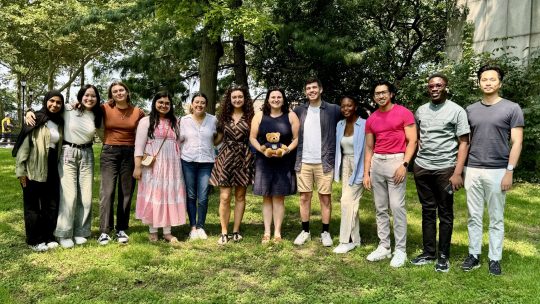
United Kingdom
Brent’s Digital Transformations for Inclusive Health in London
- Status
- Completed Research
- Research Year
- 2023-24
Transformative health reforms post-2020 brought the digitization of healthcare to the forefront. This paradigm shift prompts an exploration of digital access and its repercussions on health disparities. The COVID-19 pandemic has not only highlighted the increased risks of morbidity associated with existing inequalities but has also brought these long-suppressed disparities into mainstream media discourse, emphasizing their enduring presence and impact on health outcomes.
This research topic investigates how communities use tools such as social innovation to tackle health disparities in underserved communities in the borough of Brent. Brent serves as a microcosm of the broader national landscape in the UK with the prevalence of structural health inequities, at the national level and within the borough itself. Looking at this topic from the lens of digital innovations, especially within the post – Covid Pandemic period, the team aimed to trace barriers and catalysts to healthcare access especially the digital exclusion confronting older people or those with limited digital literacy, restricted digital access in households with lower incomes and substantial backlog for GP appointments and specialist referral.
Researchers
Mentors
-

University College London
Julius Mugwagwa
Professor of Health Innovation and Public Policy at University College London, Department of Science, Technology Engineering and Public Policy (UCL STEaPP)




